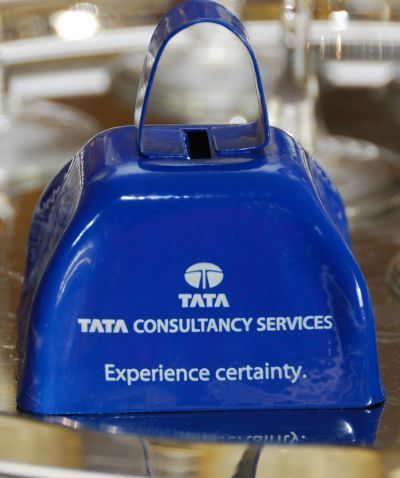
The digital revolution has digitised every bit of information around us and about us, allowing for its collection, transmission and analysis with enormous speed and potential for value creation.
India is fortunate to find itself right within the mainstream of the digital revolution currently powering the global economy.
But with such a handle on today’s key driver of progress also come risks, as Tata Consultancy Services has just found out painfully.
The prospects of having to pay close to a phenomenal billion-dollar fine for infringing another information technology firm’s intellectual property rights should concentrate the mind on what needs doing to benefit from the digital revolution while avoiding the pitfalls that lie on the digital highway.
Klaus Schwab of World Economic Forum lists the technological revolutions that have marked man’s material journey in the last 250 years.
The industrial revolution of the late eighteenth century harnessed the mechanical power of steam engines.
Then a century later came the electrical revolution which harnessed electricity for mankind’s progress.
India was neither the arbiter of its own destiny nor a player during either of these revolutions.
But when the electronics revolution came around 50 years ago India was able to get a toehold on the bandwagon. And with the advent of the digital revolution in the new millennium, this toehold has changed into a proper seat.
The digital revolution has digitised every bit of information around us and about us, allowing for its collection, transmission and analysis with enormous speed and potential for value creation.
Indian IT companies, by being able to participate in this digitisation of homes, offices and factories across the world, have enabled India to access the most modern technology to address its development deficit.
TCS, with over 15 per cent of its revenue coming from digital work, is now a part of the global team that is making life around us digitally driven.
But there is a contradiction and risk in being a player at the forefront of technology while being anchored in a society which is far behind the current technology frontier.
TCS, Infosys and other Indian technology suppliers have to learn and live by the rules of the game in developed societies and face all the aggressive competitive pressures that are the lot of any upstart.
The challenge before TCS and other such Indian firms is to be totally at home with the IPR regime of developed economies and also acquire legal defences with which to protect them when attacked on that score.
It is not enough to say that I have no intention of stealing, I must also not do anything careless which can be interpreted as stealing under a legal regime where lawyers live by earning enormous damages for their clients and a hefty portion of those damages for themselves.
So definitely be honest but be careful too; also have firewalls that eliminate scope of any conflict of interest, and importantly a battery of good lawyers standing by.
TCS was a tester of the electronic health information management software of Epic Systems used by a client. While acting as an agent of sorts, one of its employees, a former employee of that client, downloaded 6,000-odd files (which a tester’s staff cannot) with his earlier authorisation as a client staff so as to be able to work faster.
This has led Epic Systems to accuse TCS of stealing its intellectual property and aver that it did so in order to have knowledge to improve its own competing software for similar work.
In this matter firms like TCS face an additional challenge as they seek to break into the global technology big league. Competitors try to do them down and a handy weapon is the argument that India and Indian firms have scant regard for intellectual property.
TCS’s particular problem is that it is in the process of trying to become a developer and seller of proprietary software also, like Epic Systems.
So it is having to wear two hats simultaneously, both that of an agent (installer or tester) and principal (proprietor). It is hardly surprising that in the process sometimes wires get crossed.
Infosys has been at the receiving end of local animosity of a personal kind — from those who see it bringing in Indian engineers at cheaper rates, thus taking way highly paid jobs for locals.
In the process, it has had to pay a hefty fine for breaking immigration and visa rules, that is cutting corners to bring into the US more Indian engineers that it would be able to if it played by the rules.
What are the remedies available to Indian companies?
Infosys wisely put its proprietary work into a separate company so that wires don’t get crossed.
All Indian IT companies, most of whose business is in the developed economies, need to become very rigorous with systems and process, with a strict eye on the rule book.
Any vestige of the Indian way of informally organising things, jugaad, should be given up.
The need to play by the rules of the game that prevail on the main global playing fields is critical because any Indian IT company which is trying to break into the high value sphere of digital work has to become platform based (log onto my proprietary system and pay per use) and therefore highly mindful of IPR issues and practices.
To stay away from digital work will mean finding margins increasingly squeezed by automation.
But by acquiring digital capabilities Indian IT firms can help India go forward on its own steam, unlike in the days when India had to rely solely on imported machines.












 © 2025
© 2025